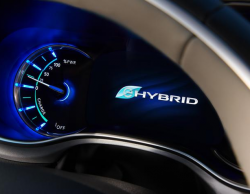— Chrysler Pacifica Hybrid problems have caused the automaker to recall 2017-2018 minivans, twice, and now those Pacifica Hybrid problems have also caused a class action lawsuit filed by a California minivan owner.
The 2017-2018 Chrysler Pacifica plug-in hybrid vehicles (PHEVs) allegedly are at risk of exploding into flames and damaging both property and people.
California plaintiff Rodrigo Nieto Gomez purchased a new 2018 Chrysler Pacifica Hybrid in June 2019, but he says the value of his minivan has been diminished because of the problems.
Since learning about the Chrysler Pacifica Hybrid problems, Gomez has allegedly paid an electrician to move the minivan charger about 80 feet away from his house and has installed a smoke detector next to the charger.
Additionally, the plaintiff often gets online to search for updates about a Pacifica Hybrid recall, and he says if he "had known about the Defect, he would not have purchased the Class Vehicle or would not have paid as much for it."
"The inconvenience suffered by Plaintiff and Class Members cannot be overstated. They are now forced to effectively isolate their Class Vehicles from structures and other vehicles. They can no longer safely charge their Class Vehicles in their garage or next to their house or park them near structures or other vehicles. As a result, they live with the fear of fires erupting in their Class Vehicle, potentially causing injury to individuals and damage to property." — Chrysler Pacifica Hybrid lawsuit
Chrysler Pacifica Hybrid Problems Cause Recalls
Owners of 2017-2018 Pacific Hybrid minivans learned about problems when Chrysler announced a recall in February for more than 16,000 minivans in the U.S. Chrysler said it was aware of 12 fires that occurred while the vehicles were shut off, and eight fires occurred while the Pacifica Hybrids were charging.
Chrysler said no crashes or injuries had been reported, but the automaker also said it didn't know what was causing the fires or how to fix the minivans. While engineers try to find the cause of the fires, Chrysler warned customers to park outside and away from anything that could catch fire.
The Chrysler class action alleges Fiat Chrysler has not offered loaner vehicles to Pacifica Hybrid owners who are waiting for recall repairs, even though the automaker admits it doesn't know the root cause of the problems or how to repair the minivans.
And this isn't the first recall for Chrysler Pacifica Hybrid minivans because a June 2020 recall was issued for 2017-2020 Chrysler minivans following reports of fires.
However, Chrysler said the Pacifica Hybrid problems were caused by the 12-volt batteries used to power radios and other personal devices. Chrysler said fires could occur due to corrosion that affected the 12-volt battery isolator posts located near the rear seats.
Chrysler told minivan owners the Pacifica Hybrid problems could be repaired by installing gaskets on the isolator posts for the batteries. But if the post connection was bad, dealers were told to replace the isolator posts and the battery cables.
But according to this class action lawsuit, the repairs "did not fix the fire risk and the vehicles are still at risk for catching fire or exploding."
The Chrysler Pacifica Hybrid problems have allegedly caused customers to suffer damages because all owners have now lost the benefit of their bargains and because they overpaid for minivans that are allegedly now worth less than they should be.
The Chrysler class action lawsuit also asserts Pacifica Hybrid owners are stuck with vehicles they cannot safely use, and customers are also having to pay their own money related to the loss of use of their minivans.
The Chrysler Pacifica Hybrid class action lawsuit was filed in the U.S. District Court for the Northern District of California: Rodrigo Nieto Gomez, v. FCA US LLC.
The plaintiff is represented by Casey Gerry Schenk Francavilla Blatt & Penfield, LLP

